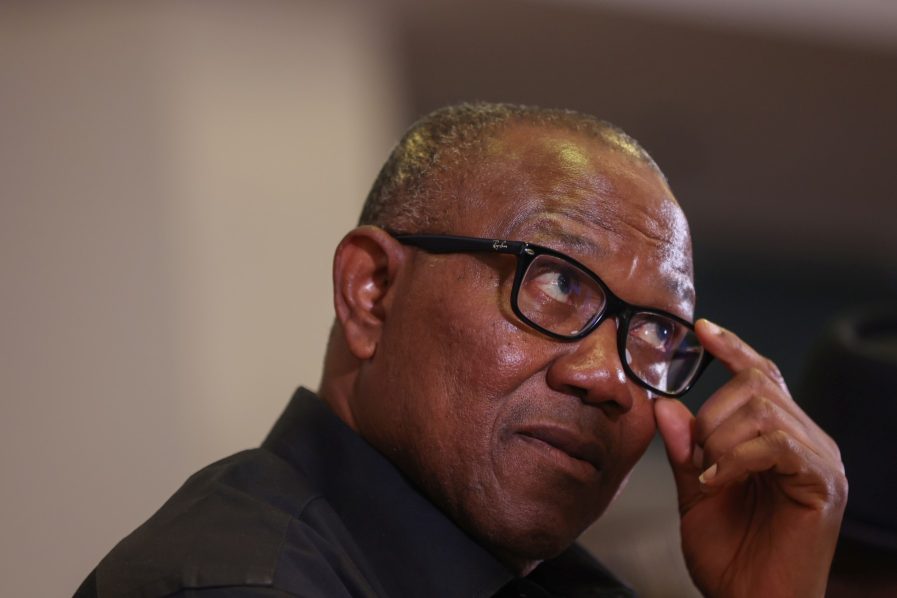2.6K
By Meche Oswald
Peter Obi once captured the soul of a wounded nation. Unassuming, and data-driven, he emerged as the embodiment of what leadership in Nigeria could look like, efficient, humane, and dignified, or so we thought.
In him, many saw a long-awaited departure from the political rot that has crippled our national destiny.
But today, the most potent threat to Obi’s credibility is no longer INEC, nor Tinubu’s political machinery. It isn’t the judiciary. It isn’t even his regional rivals. The danger now lies much closer, within the house he helped build. It is a toxic, hyper-aggressive faction of his own support base: the fanatical Obidients. This movement has morphed into a cult of rage, intolerance, and digital tyranny. From a citizens’ crusade, it has become a digital mob. From a movement, it has mutated into a menace.
Let’s be clear: this is not a blanket indictment. Few Obidients remain patriotic, reflective, and committed to democratic ideals. But there’s an increasingly loud and visible fringe whose behavior is not just counterproductive, it is corrosive. These are the keyboard warriors who have mistaken emotional outbursts for activism. They hurl insults at critics, weaponize dissent, and mistake blind loyalty for patriotism. Their creed is simple: “Where Peter Obi goes, I go”—a slogan that now sounds more like a hypnotic chant than a political philosophy.
This slavish mentality is disturbingly familiar. We saw it with the Buharists, those messianic foot soldiers who once demonized anyone that questioned Buhari’s competence. They labeled critics “enemies of progress,” peddled dangerous falsehoods, and some, in the most tragic chapters, went as far as murdering fellow Nigerians in the North for daring to oppose their idol. That was not politics. That was extremism. That was terrorism.
And now, that same ideological virus is spreading again, this time not through machetes and bullets, but through hashtags, screenshots, and cyberbullying. Across X (formerly Twitter), Facebook, WhatsApp forums, and YouTube comment sections, these digital fanatics are dismantling coalitions, alienating allies, and erecting echo chambers where dissent is treason and constructive criticism is heresy.
Today, Peter Obi is losing friends not because of what his enemies are doing, but because of what his own fanatics are saying. Once-strong allies are becoming increasingly disillusioned. The latest is Segun Sowunmi, former spokesperson to Atiku Abubakar, who recently joined the growing list of critics, not because he turned against Obi, but because he was repulsed by the conduct of Obidient bullies online.
These Obidients are tearing down the very political structures they lack the maturity or capacity to build. They insult respected statesmen, trivialize opposing views, and malign anyone who offers even mild disagreement. Their attitude reeks of insecurity and self-righteousness. Sadly, their unfiltered aggression has done more to demarket Peter Obi than any APC propaganda machine ever could.
What’s even more troubling is Obi’s eerie silence. His refusal to directly confront or disavow these extremists risks being interpreted as either tacit approval or political cowardice. Is he afraid of offending the mob that cheers for him? Or is he unwilling to admit that the monster he once inspired has gone rogue?
And let’s not ignore the cultural contradiction: many of these fanatics are Igbo youths, people from a culture that traditionally values humility, independent thought, and communal reasoning. We don’t worship mortals. We challenge authority. We debate. We disagree. We seek ‘Umunna’ consensus, not conformity. When did we become devotees of a political messiah? How did we become so intolerant of nuance?
Fanaticism, by its very nature, annihilates reason. It does not build. It only destroys. This brand of political extremism will not only discredit Obi, it will derail the very possibility of a credible third force in Nigeria’s politics.
It must be said without fear: supporting a leader is not the same as surrendering your brain. Patriotism is not blind devotion. Passion is not hysteria. The line between loyalty and lunacy must never be blurred.
The Obidient movement must urgently self-correct.
The new Nigeria we dream of cannot be built by emotional mobs or digital lynch squads. It must be forged by thinkers, reformers, and advocates with emotional intelligence and ideological depth.
A revolution that attacks its own conscience will eventually self-destruct. A movement that canonizes its leader will soon crucify its values.
Can Peter Obi rise above political calculation and boldly disown this cancer within his camp? Can he call his followers to order, not just for the sake of his ambition, but for the soul of the democratic future he claims to represent.
This country is too broken, too fragile, and too important for us to hand its future over to noise-makers masquerading as nation-builders.
Let us return to reason. For Nigeria. For posterity. For ourselves!



